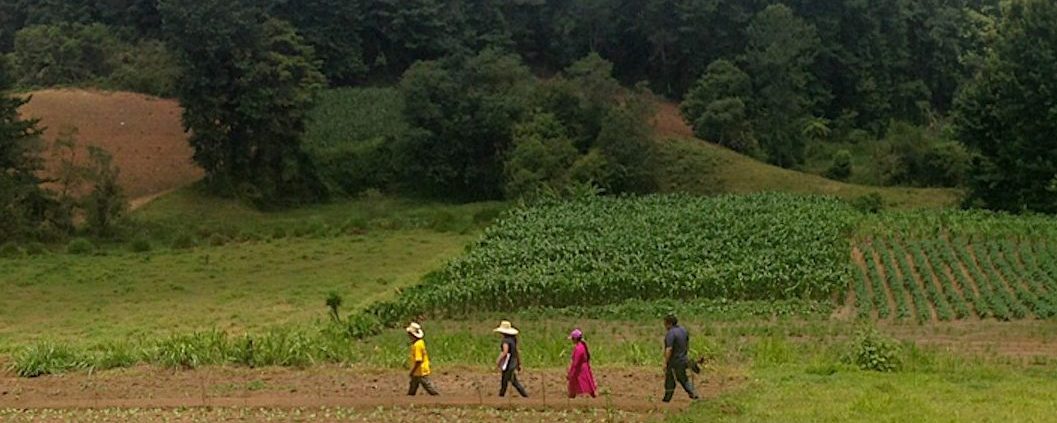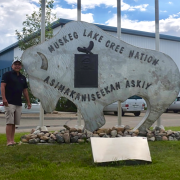Growing Gender Equity through Gardens in Honduras
By Michelle Einstein, MURP ’19
During the weeks I spent in Honduras, I learned a lot from meeting with local community members — about gender issues for rural farmers, the generosity of strangers, and, importantly, how to properly plant sweet potatoes. This summer, I participated as a fellow through University of California’s RIFA (Research and Innovation Fellowship in Agriculture) program.
I collaborated with a research team at Zamorano University in Tegucigalpa to explore how Honduran women can utilize horticulture to improve their health and livelihoods. We examined how small-scale agriculture can support women’s self-empowerment. Through my project, I evaluated the effectiveness of gender-sensitive horticulture trainings that Zamorano delivered in the spring, which supported participants to establish small-scale sustenance gardens.
Over the summer, we finished surveying more than 50 Farmer Field School participants about their gardens. Most participants live about an hour away by car from La Esperanza, the small town where I stayed this summer. We visited the garden of each participant, took inventory of crops they are growing, and inquired about the successes and challenges they faced with their plots.
Overall, the farmer field schools demonstrated many exciting results. Nearly all participants established a garden, harvested produce, and planned to grow crops in the future; this demonstrates that participants feel the process is worthwhile. Participants expressed pride in their efforts and felt empowered by their abilities to provide food for themselves and their families.
The biggest takeaway from the research for me has been the need to integrate local nuances into programming. While the Farmer Field School lessons provided an adequate basis of knowledge, our research team discussed opportunities to incorporate the realities of life in rural Intibucá into future curriculum. For instance, instruction stressed a double digging gardening technique, which is a time- and labor-intensive method to increase soil aeration and drainage. Individuals who utilized the technique generally achieved outstanding results. However, only a couple of participants had the time or physical strength to use the method. Overall, double-digging was not a viable technique for participants.
Another example involved the irrigation systems provided during the Farmer Field School. For participants with running water, the drip irrigation system effectively supplemented rainfall. The reality for most participants, however, was that carrying buckets of water from distant streams was not a plausible method to fill their tanks. As a result, many participants experienced issues with a lack of water, despite the presence of an irrigation system.
Participants demonstrated a nimble and flexible approach to challenges: they developed their own digging techniques and created shorter garden beds; they grew more of the drought-resistant plants; and they favored beans and sweet potatoes, which do not require expensive seeds. However, the future iterations of the Farmer Field Schools could maximize their effectiveness if they incorporated context-specific methodology from the beginning. By addressing local social, economic, and environmental hardships from the onset, the Farmer Field Schools could alleviate some challenges that participants face.
This need for context-specific programming is important in both international development and urban planning. Rather than defaulting on general best practices, we must consider the nuances in local communities. Further, we must address the systematic issues that influence these day-to-day challenges.









